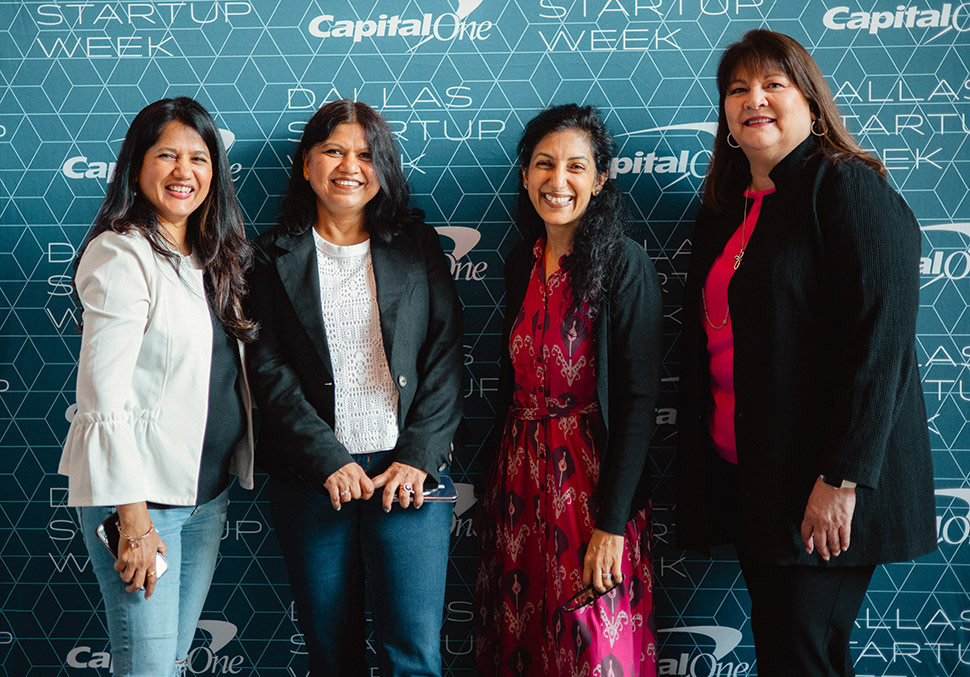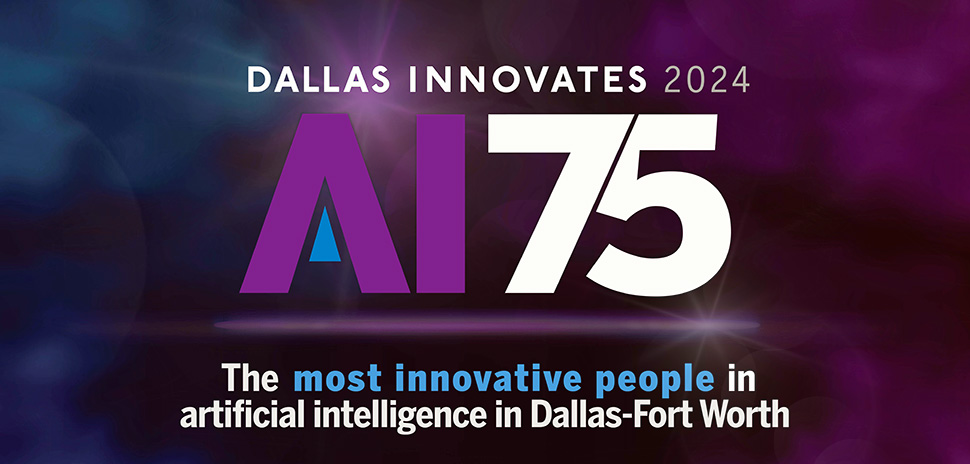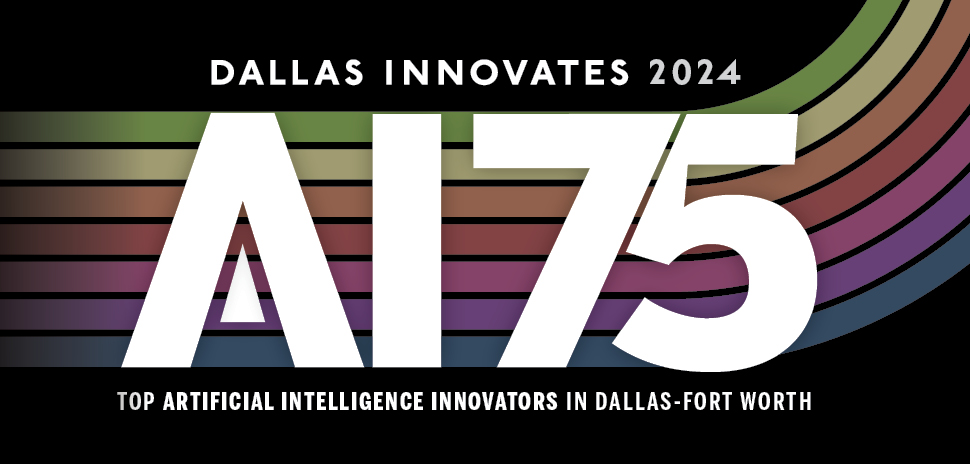With artificial intelligence now a fact of business life, Fortune 500 female tech executives at Dallas Startup Week shared a simple message: Embrace the change.
“I don’t think there’s a fear,” said Gloria Anduaga, North America health lead for Accenture’s Microsoft business group. “This just makes us better. The technology is making us better.”
Anduaga was joined by fellow Fortune 500 tech leaders Indu Jain, a senior executive in tech and data at Capital One, and Pratibha Aphale, who leads information security at Goldman Sachs. The panel, moderated by Neha Kunte, CEO of MNK Infotech, shared hard-won wisdom on juggling responsibilities and finding your strengths, covering everything from AI’s impact to overcoming imposter syndrome.
Here’s what they had to say.
Mastering the art of wearing multiple hats
As tech leaders of industry giants with a combined 60 to 70 years of experience, Anduaga, Aphale, and Jain have had to master the art of juggling diverse responsibilities.
Aphale of Goldman Sachs, who has worked in fields from manufacturing to financial services, acknowledged that juggling as a universal challenge, especially for working parents. “We wear multiple hats … every single day. Dads do too, but we wear different hats,” Aphale noted.
She stressed the importance of self-awareness in navigating roles from home to the workplace. “Know yourself,” she said. “It’s up to your principles and your personality.”
Aphale said that at work, wearing “multiple hats” well is a must. She offered a quick example: “If you’re implementing a process in one part of any function or business, you have to understand the impact.” Seemingly simple decisions, like changing product shipping times, can have far-reaching consequences, she pointed out.
For her, strong mentorship and role models have been key to finding a balance: “I’ve been fortunate to really have good leaders that had a great impact on how I was operating,” she said. That guidance, she explained, was crucial in helping her understand her strengths and areas for growth.
Anduaga, whose role at Accenture involves spearheading major digital transformations for Fortune 500 companies, stressed the multifaceted nature of leadership in tech, balancing personal expertise with adaptability and strong interpersonal skills. “As a leader, wearing multiple hats, is people oriented,” she said.
In Accenture’s “matrix” organization, people often work across different departments or projects simultaneously. For example, “I may not be the top leader in a discussion, and at that point in time, I’m listening and learning,” she said.
That situational awareness is key for fast-paced corporate life, she added, “where we’re going from 30-minute discussion to the next 30-minute discussion—it is quick.”
“You’re wearing lots of different hats along the way,” she said, advising others to “know yourself and then know the people that you’re interacting with.”
That applies externally, too. Anduaga works on “huge transformational deals” helping clients use Microsoft products in their companies. The deals, she says, usually have a long timeline— sometimes a three- to five-year journey. That means plenty of adaptability in client interactions: “It’s wearing a different hat to understand where they’re wanting to take their company, and how we can help them do that,” she said, calling it a “key listening role.”
In that kind of situation, we advises talking with clients in a more Q&A-type scenario vs a against a rapid-fire “how are you” mode.
Kunte, the panel’s moderator, brought her entrepreneurial perspective to the multiple-hat-wearing topic, connecting with startup founders in the audience. For founders, “it’s different,” she said, noting the contrast between corporate and entrepreneurial environments.
In the corporate world, you usually have a big team, “and as a solo entrepreneur, you end up doing everything on your own,” Kunte observed, advising startups to build a complementary team when possible.
“If I’m not good at something, I’d rather have somebody who is skilled in those areas.”
Kunte added: “That’s the biggest and toughest question… what you’re good at, and what do you like? Those are two separate things you need to identify.”

From left: Neha Kunte, president and CEO MNK Infotech, Indu Jain, head of technology for Capital One Dealer Auto, Pratibha Aphale, and Gloria Anduaga, Accenture Microsoft Business Group Health Go To Market Lead for North America. [Photo: Tres Cox/Dallas Startup Week 2024]
The art of leadership: Self-awareness, hard skills, and people skills
Effective leadership, according to the panelists, comes down to three key traits: self-awareness, technical skills, and people skills. And while they all stressed the importance of self-awareness in navigating multiple roles, they also acknowledged that achieving this insight isn’t always easy.
While being a good listener is important, Accenture’s Anduaga said advises knowing when to speak up in internal meetings and client interactions. “Know what you’re an expert in,” she advised. “And speak up on that particular topic, because they will listen.”
Her own career started with a push from her high school math teacher, which led Anduaga to study management information systems. That path took her through roles at IBM and eventually to a CIO position in Silicon Valley. After stepping back to focus on family, she returned to the tech world, now helping companies navigate digital transformations.
Self-awareness and delegation go hand in hand, she says. And AI is here to help. “Know what you’re good at and also what you don’t like to do,” she said. “You can use AI to help with tasks you’re not good at or don’t enjoy.”
Finding your leadership North Star
Finding your path isn’t always a straight line.
Goldman Sachs’ Aphale, whose career began 18 years ago after she earned a master’s in engineering, has explored roles from systems engineering to software development and applications across multiple industries, others can often “point out what you’re really good at” to help guide your career path.
“Find someone you trust,” she advised, suggesting that leaders seek input from “your mentors, your managers, and whoever you trust.”
Jain, a 20-year veteran at Capital One who has taken on a new challenge in the company’s dealership business, knows that staging success is a continuous process. Her latest shift from a previous role running the auto refinance business for four years is “a completely different ballgame.”
She emphasized the importance of knowing your core values: “The first thing is, what are your values?” she said. “You have to be very clear about what is really, really important—like integrity, truth-seeking, honesty, ethics.”
She suggested practical methods for self-discovery: “Reflect on your day: Where are you most happy?” She recommended using personality assessments and daily reflection to identify where happiness and productivity coincide—where you hit flow, so to speak: “When you’re working on a proposal and, you think, whoa, ‘I don’t know what time it is, we just went through lunch’ … That’s what you’re good at.”
Drawing from her decades of experience, Jain stressed mastering people management. You need to understand, “How do you really work with your team, your organization? How do you work with your colleagues? How do you work with your upper management?” she said.
Riding the tech tsunami
In tech, where change is likely the only constant, how do top executives stay afloat? The panelists shared their strategies for keeping up with the relentless pace of innovation.
Accenture’s Anduaga knows that pace all too well. “The technology changes every three to six months,” she said. Her advice? Don’t try to know it all. “I’m in a sales role, so I’m able to know the tip of the iceberg of technology and not necessarily how all the details work,” she explains.
She’s “been there, done that” when it comes to tech comebacks. After taking time off to raise her daughter, Anduaga found herself playing catch-up. “Getting back, I’m like, What does Wi-Fi stand for?” she laughs, remembering. ” I had to make steps along the way. … It was a lot of learning, but you still have those skills … I still knew how to learn.”
“It’s required”
That knowing “how to learn” is key.
Anduaga emphasizes the importance of continuous learning at every level: “Whether you’re a startup, one person, 500 people, or a Fortune 1000, it’s required,” the exec said.
Capital One’s Jain agrees. “Frankly, it doesn’t matter whichever business you are in, learning agility matters,” she said. “If you’re in technology, you already know that things get obsolete very, very fast.”
Her solution? Dedicated learning time. “I have time on Friday where I spend time on whatever I need to learn,” Jain said. “I also use Saturday morning … I spend three hours just consuming information, whatever I want to learn from.”
Expanding your knowledge base
Goldman Sachs’ Aphale also advises leaders to keep expanding their knowledge base: “Take some courses, go out there, read, learn, watch videos.” There’s so much out there, she said. And while its challenging to find the time, you can “focus on what you like or what works for business.”
Whether it’s a specific tool that boosts your productivity or a strategy that aligns with your goals, leverage those resources to your advantage, she advised.
Big companies are stepping up, too. Jain noted. At Capital One, she said, “We have trainings all the time. We do pilots. We invite engineers to come participate in the pilots.”
For smaller businesses and entrepreneurs, Anduaga suggested options. “There’s all the hyper scalers, Amazon, Google, Microsoft,” she said. They “all have training that you can get online, basically free, if not low cost, and then get certified.”
Aphale also highlighted Goldman Sachs’ initiative for small businesses called 10,000 Small Businesses. “I’ve been involved for the last two years, and I’ve just been blown away by the small businesses when they come and pitch and want to be part of the program,” she said.
The program, as it turns out, has touched lives of others on the panel. Kunte, the panel’s moderator and founder of MNK Infotech, chimed in with her personal experience.
“I will definitely vouch for the Goldman Sachs 10,000 small business,” she said. “I was actually in the program’s second cohort, and it’s a fabulous program. It’s an MBA that you can get for free.”
Kunte emphasized the ongoing benefits of the program. “The networking is amazing,” she said, to which Aphale added, “And it continues, right? It’s like life.”
But regardless of the program or method, the execs agree on the bottom line: In tech, if you’re not learning, you’re falling behind. As Aphale puts it: “It’s a continuous adapting and learning journey. That is what gets me here.”
Character and attitude: The X-Factors
But beyond technical skills, what makes rising talent stand out for these leaders?
The execs, who have been on both sides of mentorship and the leadership table, agree that character is key. While skills can be taught, character traits like integrity, willingness to learn, and a collaborative spirit are fundamental.
Aphale looks for attitude and perspective. “For me, it’s all about attitude, because skills can be learned,” she said. “If you have the right attitude and perspective, it goes a long way.”
The panelists also offered insights on how emerging leaders can position themselves for success.
Don’t underestimate the importance of confidence paired with preparation, Anduaga said. “Confidence is key, because you can learn the skills if you’re already at the table.” But, she cautions, “If you’re coming to a meeting, or if I’m your mentor and you’re not prepared, that doesn’t sit well.
“Come prepared because I’ve taken time out of what I was doing.”
Jain from Capital One stressed the value of a growth mindset. “It’s about the desire to learn and grow, and investing in other people,” she said. Jain looks for people who will pay it forward: “I want to make sure that when I’m investing in people, they also pay it forward. We’re going to make the community better.”
Jain added that clear core values can help leaders navigate their roles with authenticity, making it easier to guide their teams—and themselves—through the complexities of the tech world.
Overcoming imposter syndrome in tech
Even at the top, the execs said, self-doubt can creep in—especially in an industry often dominated by men. Imposter syndrome—a feeling of self-doubt and questioning one’s own abilities despite accomplishments—is something the panelists have all faced and learned to manage throughout their careers.
Gloria Anduaga of Accenture didn’t mince words: “I deal with it all the time. It’s real, and I think as women in tech, it’s very common.”
Her antidote? Preparation, especially “if you’re meeting with someone for the first time in your own business,” she advised. “Have you done research? … do you have value to add to that particular company? Because they’re engaging with you for some reason. Know what your company stands for.”
Focus on what problem is being discussed, and ask yourself: Do I have anything to add? “If you add value, your confidence goes up.”
Capital One’s Indu Jain offered a pragmatic definition: “Imposter syndrome is when you think that you’re an imposter while the evidence suggests otherwise.” Her advice? “Whenever you feel imposter syndrome, just look at the evidence.”
That’s powerful, she said.
Jain acknowledged that imposter syndrome can be situational. “Sometimes I do, sometimes I don’t. It depends upon the situation,” she said. Her advice? It’s all in the mindset.
She also encouraged taking realistic perspective: “What’s the worst that could happen? Usually things are not that bad.”
AI adoption: Embracing the future
No one knows better than these leaders that AI isn’t just coming—it’s here. And each of them is embracing its potential while navigating its challenges.
Capital One’s Jain sees an industry-wide rush to invest in AI, noting the amount of investment happening in her company and the broader tech industry. And while she can’t share specifics on the products and investments Capital One is making, it is “part of this new revolution that is taking place,” she said.
At Accenture, as the technology advanced, Anduaga said the company began using AI internally for productivity. The exec, part of Accenture’s Microsoft business group, uses Microsoft 365 Copilot daily. “I will ask Copilot, ‘what do I have on my agenda today, and what is any relevant information that pertains to those meetings?'” she said.
The impact on her productivity has been significant, she said: “In terms of enhancing my own individual product productivity in the workplace, astronomical.” She also uses it to speed up email, adding, “I will have Copilot review my emails that I’m going to send out.”
Anduaga sees the potential for boosting productivity across Accenture’s massive workforce, which has about 750,000 people worldwide. The company has “lots of smart people, and if we can share that information amongst ourselves internally, that’s fantastic” in terms of gains, she said.
Still, data security remains paramount. “We will use the Gen AI or AI in our own business, within our own corporate data; we cannot go outside of that,” Anduaga said.
“When Gen AI came out … there was a mandate—you will not use it for customer interaction. Data security was very key.” she explained. To ensure effective AI use, Accenture provides ongoing training. “Every week, we have the ability to sit in on a 30-minute training session,” she said, adding that employees can “ask questions and see how it is being used.”
And, Anduaga pointed out, “Prompt engineering is key, because [with] those tools you have to ask for the right thing.”
Goldman Sachs’ Aphale also acknowledged AI’s transformative potential in the workplace. “It is going to change our jobs. … Every business is rushing to create models,” she said. She noted emerging roles such as AI officers and prompt engineers, adding, “It’s already out there.”
Aphale’s final thoughts on AI balance optimism with a need for guardrails: “Technology is going to change. … I’m looking at it more from a security perspective—my own thing—as well as the community and the organization I work for. There’s different aspects to it.”
![]()
Get on the list.
Dallas Innovates, every day.
Sign up to keep your eye on what’s new and next in Dallas-Fort Worth, every day.

























